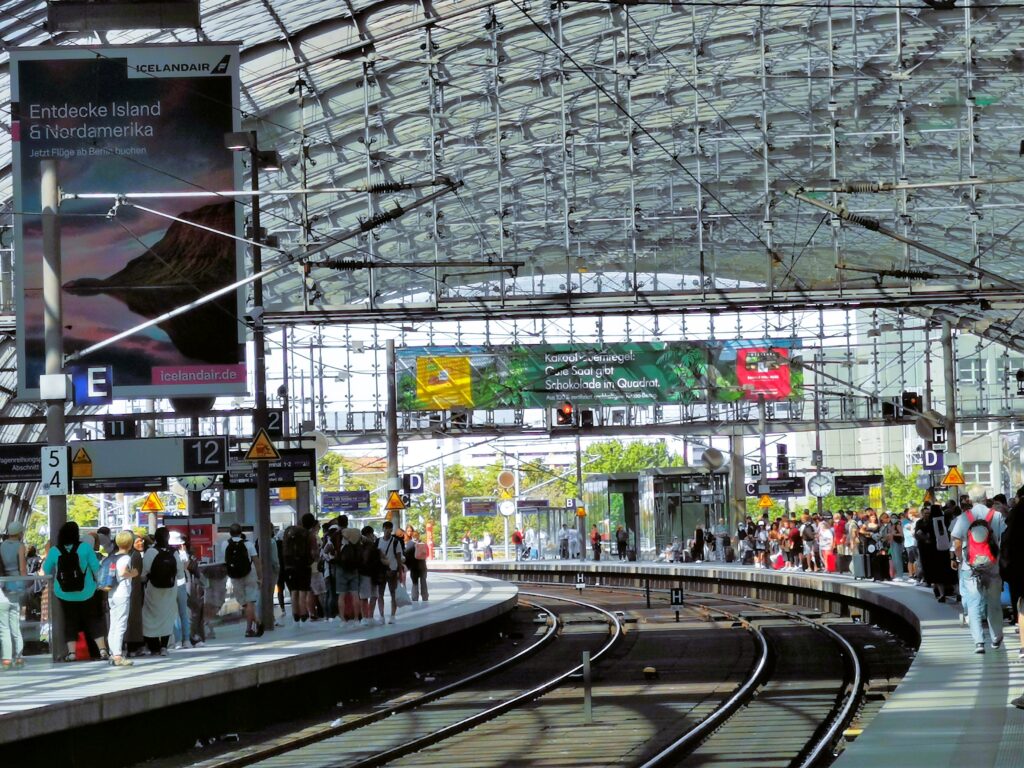UIC UNVEILS NEW MANIFESTO TO SPEED UP RAIL SOLUTIONS
The Union Internationale des Chemins de Fer (UIC) – the international railway operators’ association – has outlined its aims to address the global challenges of better mobility and climate change in its new manifesto.
The manifesto looks at existing and future solutions for how the rail industry can best serve the planet and help reduce its dependence on fossil energies. It also highlights how, given the right action and investment, operators can design a better future where rail is the backbone of a sustainable mobility system.
This inspiring vision, created by UIC’s Global Rail Sustainability Taskforce, describes a future where operators are on track to decarbonise transport and a thriving railway has unleashed many benefits for society. The vision includes a call for action to help design this better future.
This document, which is the joint result of the work of the UIC members in the different working groups, presents the development of concrete solutions taking into account the significant role of the railways and the need to:
- transform cities and connect communities;
- use clean energy, technology and innovation;
- promote intermodality and seamless connections;
- transform the customer experience.

Quick action required
With this Manifesto, UIC aims to show that the railways must act quickly in view of the urgency of the situation, must act in a coordinated manner between partners and must propose solutions that already exist or can be implemented quickly.
UIC Chairman Krzysztof Maminski said: “The Manifesto, which is an important achievement of our organisation, presents the development of concrete solutions to urgent problems and sets a timetable for their implementation. The development of these solutions will be included in the next UIC work programme for 2023-25, which will take stock of the decarbonisation process (Vision 2030).”
Rabie Khlie, UIC Vice Chairman, said: “I would particularly like to highlight the innovation dimension, through which all the world’s railways will find new sources of growth, while improving current business models and developing a forward-looking vision. As an example at regional level, this is what Africa is currently doing with the development of its Vision 2063.”
François Davenne, UIC Director General highlighted: “Globally, transport accounts for approximately 1/4 of all greenhouse gas emissions, currently the second largest emitting sector. Since the last Intergovernmental Panel on Climate Change report in April 2022, we know that, in order to reach the objective of limiting global warming to 2°C, it will be necessary to achieve a 27% reduction in emissions by 2030. In Europe, rail accounts for about 8% of passenger traffic, but only creates 0.5% of its GHG emissions.
“That means that if 10% of the European traffic was shifted to rail, the corresponding emission would drop by between 8% and 9%. This would make a significant contribution to the EU’s target of reducing net greenhouse gas emissions by at least 55% by 2030. And this result would be achieved with the existing technologies. Besides, on average, rail requires 12 times less energy and emits 7-11 times less GHGs per passenger-km travelled than private vehicles, making it the most efficient mode of land transport”.
Worldwide initiatives to speed up rail development
As the most electrified mode of transport, rail has the capability to be the essential ingredient for a net-zero-carbon transport system.
Many initiatives around the world foster investments in rail infrastructure. As an example, Europe’s New Green Deal, a major stimulus package focused on sustainability, is estimated to include €87.5 billion of investment related to rail infrastructure issues.
Similarly, in the United States, the Infrastructure Investment and Jobs Act provides $66 billion in funding and grants for corridor development, track upgrades and safety improvements. Improving rail connectivity and convenience is a goal of other continents, such as Asia, where high-speed rail is growing daily, and Africa, where an integrated African high-speed rail network is at the heart of “Agenda 2063”.
To date, 38 UIC members have committed, through the UIC Railway Climate Pledge, to achieving net-zero emissions by 2050 as well as contributing to the United Nations Sustainable Development Goals.
